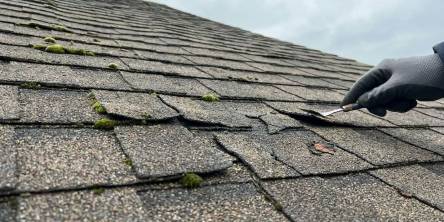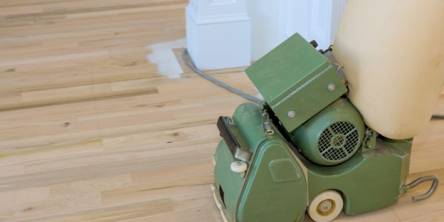Pros & Cons of Vinyl Flooring and Its Types

Vinyl flooring is an option for homeowners who need a durable and economical alternative to hardwood. Vinyl has been designed to almost mimic any naturally occurring flooring material. This allows you to enjoy the appearance of hardwood without the related cost. There are many benefits of installing a vinyl floor over any other.
Pros of Vinyl Flooring
The benefits of vinyl will be presented in relation to other flooring materials and with vinyl as a stand-alone flooring material.
Durable
vinyl flooring materials are made of synthetic materials that are not easily damaged by natural elements. Vinyl can withstand heavy traffic without fading or get damaged. This includes traffic that is rough on the surface like materials being dragged.
Value
Compared to the price of purchasing and installing vinyl, this is one of the flooring materials that give the best value for your money. Despite vinyl being extremely affordable, it lasts incredibly long and can be used on almost all surfaces.
Versatile
vinyl flooring materials come in different forms. They include sheet vinyl flooring, tiles, and planks. Furthermore, these materials offer three different types of surfaces to meet the needs of dynamic floors. These surface options are urethane, vinyl-no wax, and enhanced urethane. The texture and durability of these surfaces differ.
Variety
vinyl has been used to mimic almost all other natural types of floors. There are planks that resemble wood, carpets, and even modern-innovative flooring options like a sea, sky, and other landscapes. In fact, customized vinyl enables you to create any floor design that you wish. This variety almost makes it impossible to miss your preferred floor design.
Affordable
the cost of vinyl is reasonably low compared to all other flooring materials. With such characteristics as water resistance and versatility, you will be getting the most affordable flooring material. Mimicking, for example, enables you to install a ‘wooden’ floor at a fraction of the price.
Easy to install and maintain
vinyl resists water and can be installed on almost any type of surface. Maintenance requires regular cleaning with plain water and a rag. Technology has enabled the surface to maintain its shade despite years of high traffic use.
Water resistant
vinyl is a synthetic material that does not soak up any water. This provides a perfect floor option for areas such as the kitchen or bathroom where water frequently spills. The fact that the tiles do not soak water means that the subfloor will remain intact.
Cons of Vinyl Flooring
Other advantages you enjoy with vinyl flooring include comfort as you walk on the surface and an improvement in the quality of air in rooms installed with vinyl tiles. However, vinyl has its own shortcomings. Here are some of them:
Easily damaged
vinyl is a synthetic material that is easily damaged by heavy loads or traffic on the surface. This will reduce the quality and appearance of your floor. Since the tiles are easy to damage, they will require frequent replacement which makes it expensive.
Less stylish
Though the appearance can be deceiving, a person walking on the floor will tell that you are using vinyl instead of wood or carpet.
Noisy
vinyl surface is noisy compared to natural wood. This is especially true because of the hard surface in an attempt to make it durable and the fact that vinyl tiles or sheets are extremely thin. You will sometimes be required to use rugs to absorb some of the noise.
Easily fades
the floor easily fades when it is exposed to direct sunlight for a prolonged period. This would limit the use of vinyl in outdoor spaces or areas that have large windows. It is advisable that you draw curtains whenever the sun is too hot and penetrating into the house. Discoloration will affect the appearance of your floor especially when you move or rearrange furniture.
Easily damaged by heat or sun
vinyl is made of urethane, a type of plastic that changes properties once subjected to heat. Direct sun will even damage the floor if it exceeds a certain temperature and shines for a prolonged period. This may affect the integrity of your floor. This limits the places you can use vinyl flooring.
There are different types of vinyl flooring materials based on their design and size. They include:
1. Sheet Vinyl Flooring
Sheet Vinyl flooring comes as a single sheet that is usually between 6 and 12 feet wide. Sheets are developed to reduce the number of seams on your floor. It is, therefore, a perfect option when you need to keep moisture away from the surface. However, in case of damage, you will need to repair a wide area. Furthermore, it will appear naturally synthetic. This is a perfect option for kitchens and bathrooms because it prevents penetration of water to the subfloor.
2. Vinyl Tiles
They are designed like natural ceramic tiles. They come in different sizes and shapes, which allows you to create patterns on your floor. You will have more seams on your floor. The advantage is that such tiles are easy to replace in case one tile gets damaged.
3. Vinyl Plank
They resemble wood because they are long and rectangular in shape. The idea is to give you a floor that resembles hardwood. This will come at a lower cost yet offer numerous advantages. Planks, like tiles and sheets, are water resistant and not easily stained.
Vinyl offers excellent value for your money and a variety of floor options to choose from. It is easy to install and costs less to repair and maintain. Vinyl is also versatile and durable which guarantees excellent value for your money.
Similar Articles
We all know that roofs don’t last forever, but how do you know when it's really time to replace yours? After all, your roof is out of sight, out of mind, right?
As winter settles in and temperatures drop, families across the country brace themselves for the inevitable spike in energy bills.
Wooden floors have long been the subject of admiration for their classic beauty, natural warmth, and strength.
When it comes to giving your home a fresh coat of paint, most homeowners focus on choosing the perfect color and finish.
The holiday season transforms neighbourhoods into glowing wonderlands, but today's homeowners are moving beyond the traditional approach of simply stringing lights wherever they fit.
City homes face a constant challenge around outdoor space. Gardens are small or nonexistent, balconies are narrow, and any outdoor area feels precious.
Anyone who's worked in a commercial kitchen knows they operate with an efficiency that home kitchens rarely match.
When you want to transform your home with a complete makeover, you must find the best ways to save money. Let's check some cost-saving tips for renovating.
Handrails are one of the few things that merge safety, fashion, and structural importance in a home most naturally when the home is being either designed or renovated.









